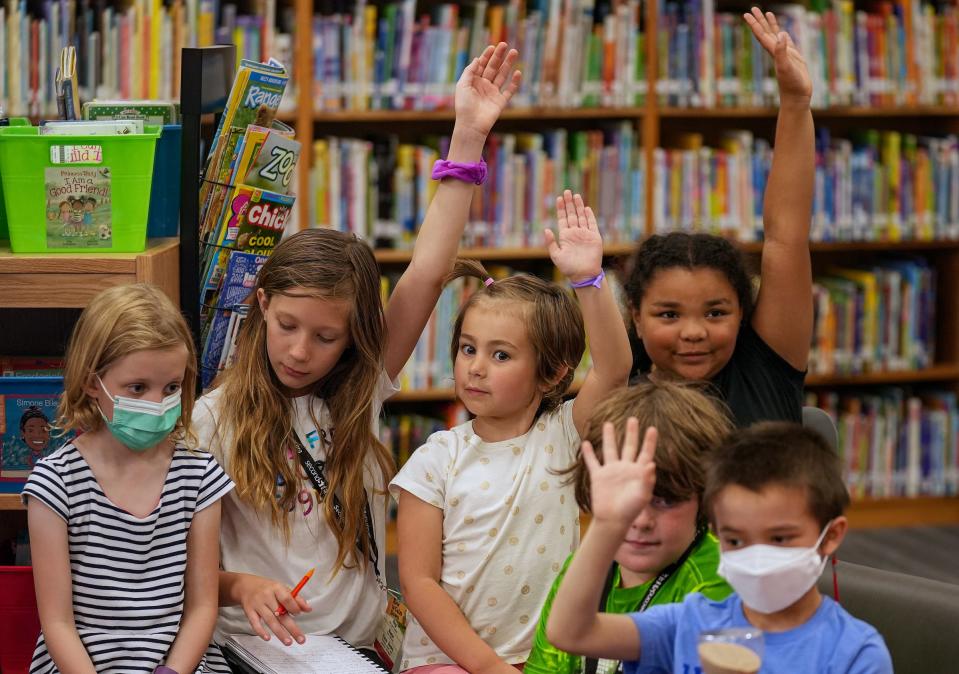Op/Ed: Washington Township schools need 'all-hands-on-deck effort' to end achievement gaps
As parents of elementary-aged kids in the Metropolitan School District of Washington Township, we see the district’s racial achievement gaps — which, as recently reported, are the largest in Marion County — as a crisis to be addressed with an all-hands-on-deck effort. We hope district leaders and our fellow residents and taxpayers share our sense of urgency.
Thousands of young futures, including those of our own children, depend on it. The gaps that exist are a moral issue and a problem that we will continue to see the effects of long term. We are not doing a good enough job educating the students that make up the majority of our community.

More:Why Washington Township school district has the largest achievement gap in Marion County
And it’s personal to us — because we have lived this data.
Our children attend the same school, Willow Lake Elementary, but in many ways, they inhabit different worlds. Kye’s son, who is white, attends the dual language immersion program at Willow Lake, with a diverse group of students. In many ways, this program operates as a “school within a school” because parents and students have made a choice to apply to a lottery to get into the program. They are pushed to excel with a challenging curriculum that requires them to learn most of their coursework in Spanish, while also gaining exposure to different cultures.
Amy’s two children, who are Black, are enrolled in the general school. While most of their fellow students are Black and Hispanic, the majority of their teachers are white. And while Amy holds high expectations that her children will work hard, be challenged, and land prepared for success in the real world, she has not found the same standards to be upheld for her children in their classrooms.
More:Washington Township parents frustrated by busing issues as district faces driver shortage
The district’s teachers — who work hard in a difficult job and have been especially challenged over the last few years ― should not shoulder the blame. The problem is a system that sees enormous gaps in academic outcomes based on race and income and points to social-emotional learning and engaging teachers in conversations about race as the main solutions. Those are critical steps, but they are not anywhere near enough.
What’s needed is a holistic, academic-centered approach that includes increasing access to high-quality pre-K, doubling down on early literacy and increasing high-dosage tutoring and STEM programs. We need innovative solutions, and we need our school board members to be laser focused on this issue for the years to come.
The district must open itself up to input and engagement from parents of all backgrounds and income levels.

More:IREAD-3 2022 results: Third graders make slight gains, still not at pre-COVID levels
The current avenues for such engagement, such as the Washington Township Advancement Center and Parent Council Network, feel limited to the privileged parents who are “in the know,” with too many families who are low-income feeling uninvited. Importantly, the district should ensure that opportunities for engagement — such as meetings with teachers and schoolwide meetings — are communicated well in advance and held at times convenient for working families.
We must demand better results across the district. When only 22% of all students pass both math and English Language Arts portions of the ILEARN, it should give all of us reason for concern.
Like all parents, we want the best for our children and all kids within Washington Township schools. We believe that district leadership does, too, and to that end, we call upon district leaders to provide a plan for addressing Washington Township’s racial achievement gaps and improving overall student performance. We ask for leaders’ accountability in tracking progress and reporting results.
More:Elections 2022: Meet the candidates for school boards around Central Indiana
With targeted interventions, Washington Township can close the gaps in academic outcomes based on race and become an exemplar for other districts that also are grappling with this enormous challenge.
Amy Watson and Kye Hawkins are parents of students in the Metropolitan School District of Washington Township.
This article originally appeared on Indianapolis Star: Same school, different results: Racial achievement gaps more than data

